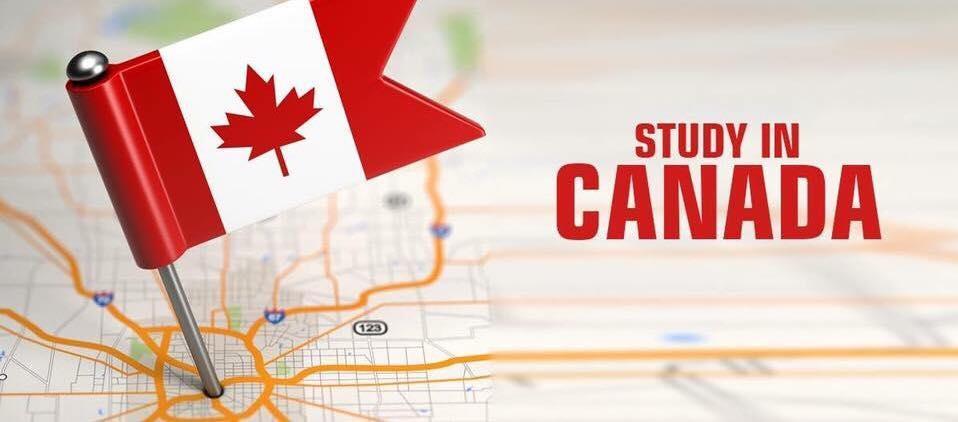Study In Abroad
Study In Canada
Welcoming and conducive atmosphere for international students for quality education, and an opportunity to work or immigrate to a beautiful country with a robust economy when you are done with your studies, you should consider studying in Canada. Canada is popular for their Colleges and Universities which host over 300,000 international students every year. The “term” college in Canada refers to technical, applied arts, or applied science & business school. These schools provide both local and international students diplomas, vocational certificates, graduation, post graduation etc. Many people from around the world attend Canadian colleges for certifications courses for their Master’s degree programs
Canadian Bachelor’s degree program typically takes 3 to 5 years to complete depend on your decision (full-time or part-time) and also on the state you found yourself.

Canada provides one of the best Master’s and Ph.D Degree program in the world. Most international students prefer to get their M.sc or Ph.D. in Canada because of the quality of their education system. In most cases, A Master’s Degree will take between one or two years to complete while Ph.D. can last up to six years. You will have an opportunity to work part-time while doing your Master’s or Doctorate degree program in Canada.
EDUCATION SYSTEM
The education system in Canada has been making serious improvements in the sector of academics and has ensured fame world class academic performance. Canada is famous for spending good sum of money behind developed of education
EDUCATION SYSTEM IN CANADA
- Certificate, almost for 1 year
- Diploma for 1-2 years
- Advanced Diploma, almost2-3-year programs
- Bachelor degrees, awarded after four years of full-time study
- Post-graduate Diplomas/Certificates, for one or two years of study
- Master’s degrees, available after a bachelor degree to excel in a certain subject, for one to two years
COST OF STUDY
For international students, getting admitted to universities and colleges in Canada requires planning and financial commitment before they are there. Compared to many countries cost of studying and living in Canada is very affordable. To cover your tuition fee and living expenses you will likely need $20,000 to $30,000 (CAD) annually.
Tuition
Tuition fees for international students vary across provinces and programs. The table below shows the weighted average tuition fees (in Canadian dollars) for full-time foreign students, by field of study.
Housing
Most universities offer on-campus residences for students, some of them specifically for scholars from abroad. But acceptance at a Canadian school does not automatically mean you can get a room in residence. Students must apply separately for on-campus housing, and its cost varies across institutions and will depend on whether or not you want a private room or a meal plan, for example.
Transportation
One-way public transit fares typically cost a few dollars, and monthly passes range from about $80 to $110, although many transit providers offer student discounts
#Approx: $80 to $100 per month.
Health insurance
All international students in Canada must have health insurance, and the medical coverage that’s available varies from province to province. Alberta, British Columbia, Manitoba, Newfoundland and Labrador, and Saskatchewan cover international students under their provincial health care plans, but coverage generally depends on the length of your stay.
#Approx: $300 to 500 annually.
REQUIREMENTS
A student visa is mandatory, this is also known as study permit. The visa ensure that student to enter Canada with full-time any degree or any diploma courses offered by a institution listed in the PeacelandStudents have an option to lodge their Canada visa application through online link available at Peaceland website.
Documents required for visa application are as follows:
- Passport
- Passport-size photographs
- Unconditional letter of acceptance
- Fees receipt (recommended)
- Any relevant correspondence with the institution
- Financial documents
- Academic documents
- Test scores
- Work experience certificates (if applicable)
- Medical report (if already undertaken).
WORK OPERTUNITIES
Part-Time
Study permit holders may be eligible to work off campus without a work permit as soon as they begin their studies in Canada.
These students who are eligible may work for any eligible Canadian employer
- for up to 20 hours a week while class is in session and
- full-time during scheduled breaks
Post-Graduation Work Permit Program
Foreign students who have completed a program of at least eight months at an eligible Canadian school may apply for a Post-Graduation Work Permit. This permit lets them work for any eligible employer in Canada for up to three years, depending on the length of their study program.
